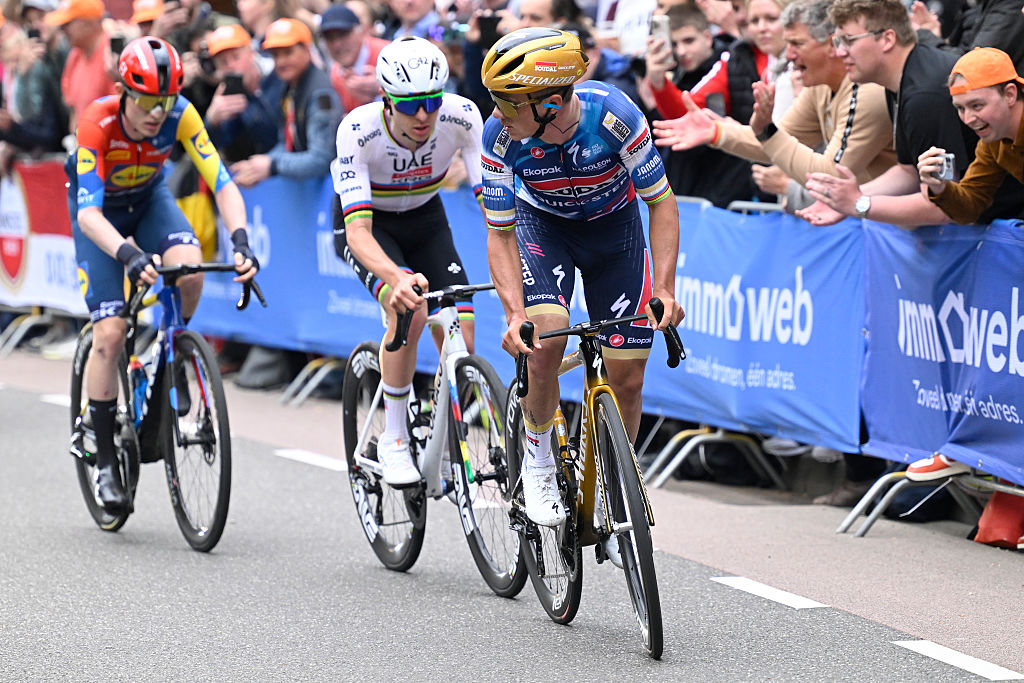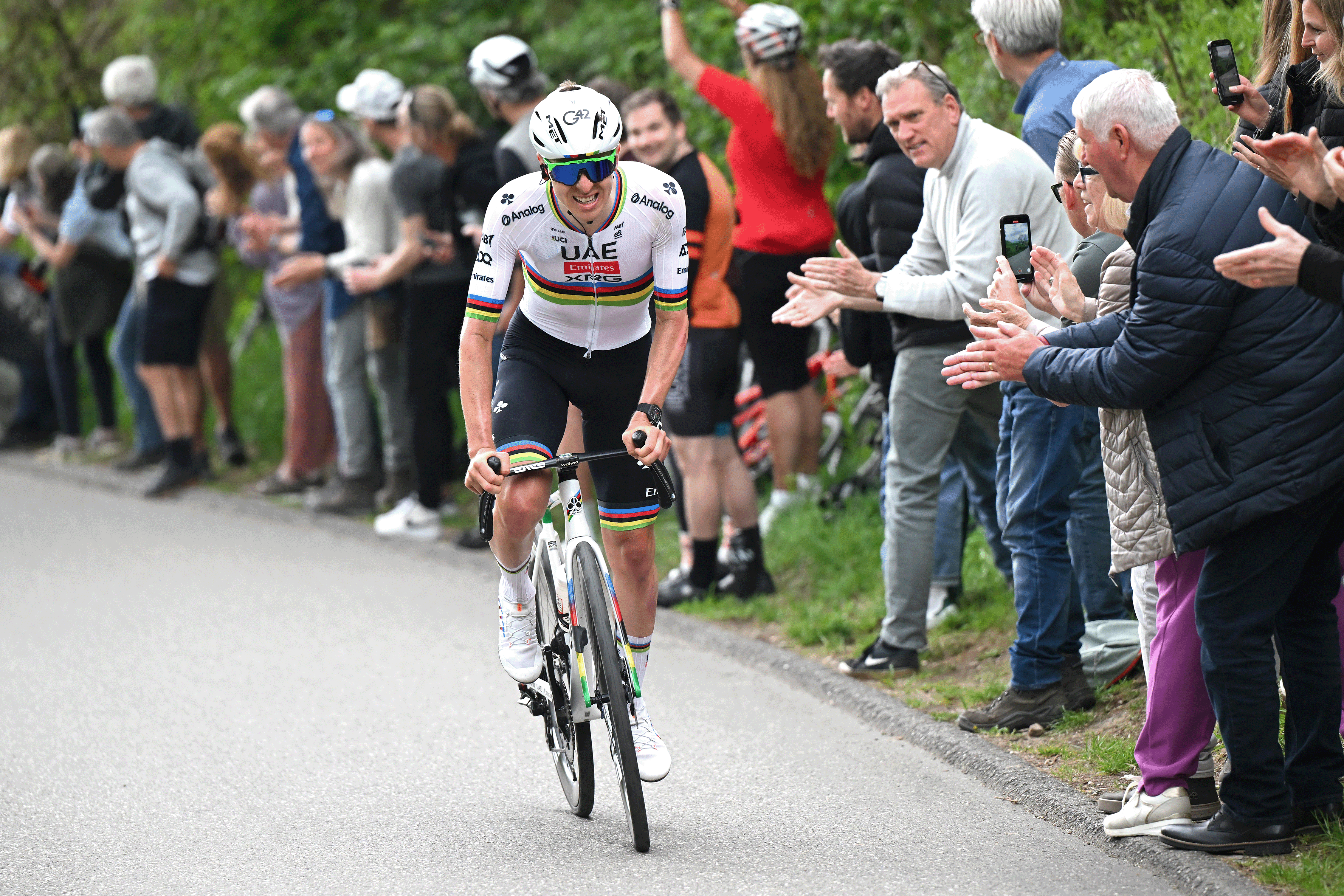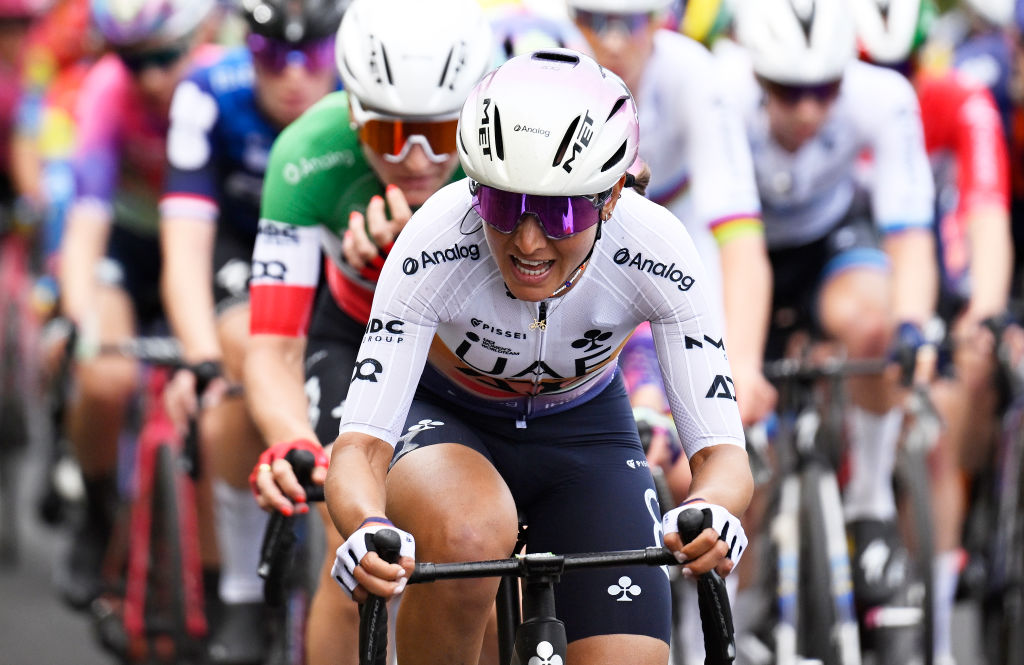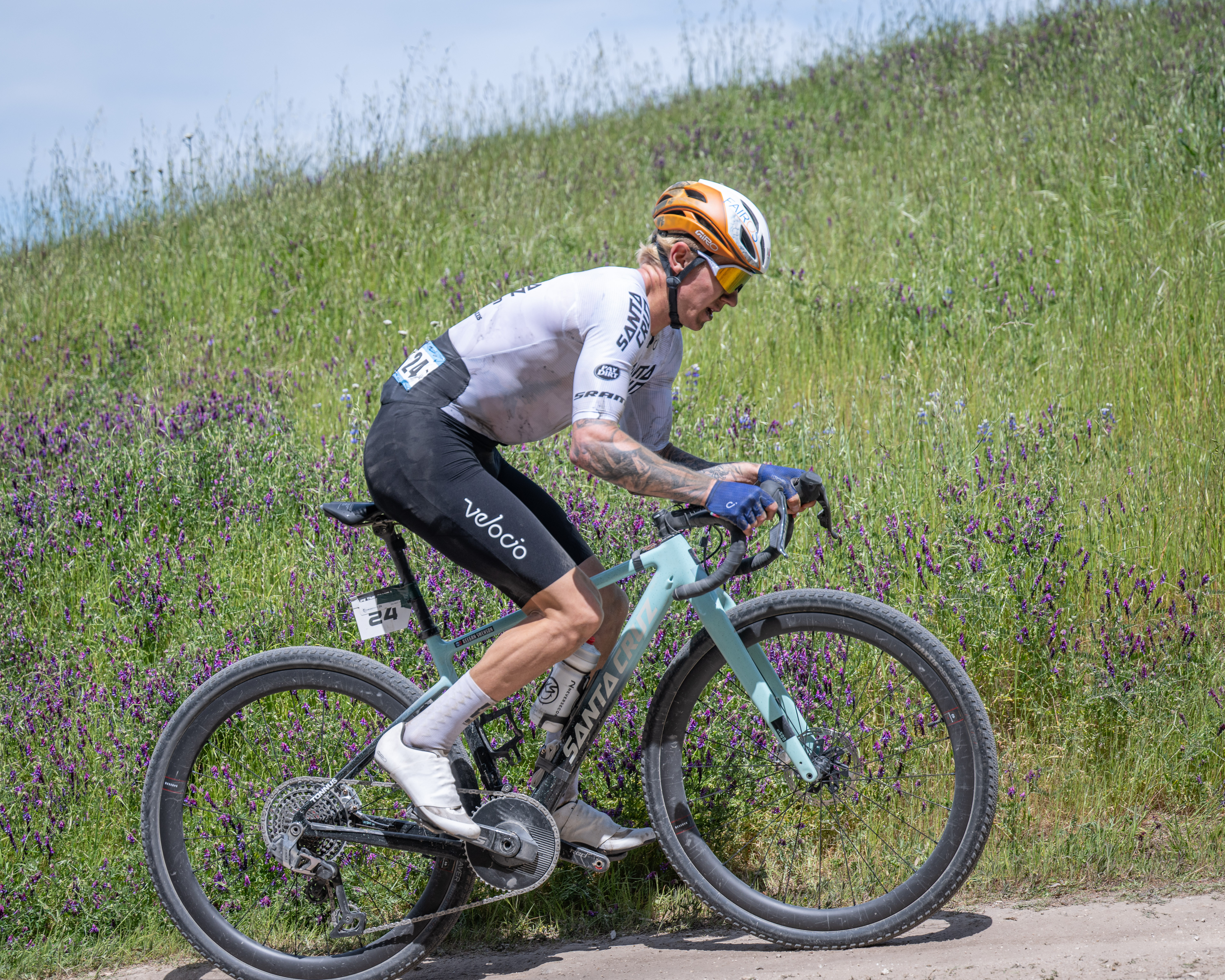Tour de Pologne – The essential race preview
Can Michał Kwiatkowski win his home tour on a hilly but not mountainous course?
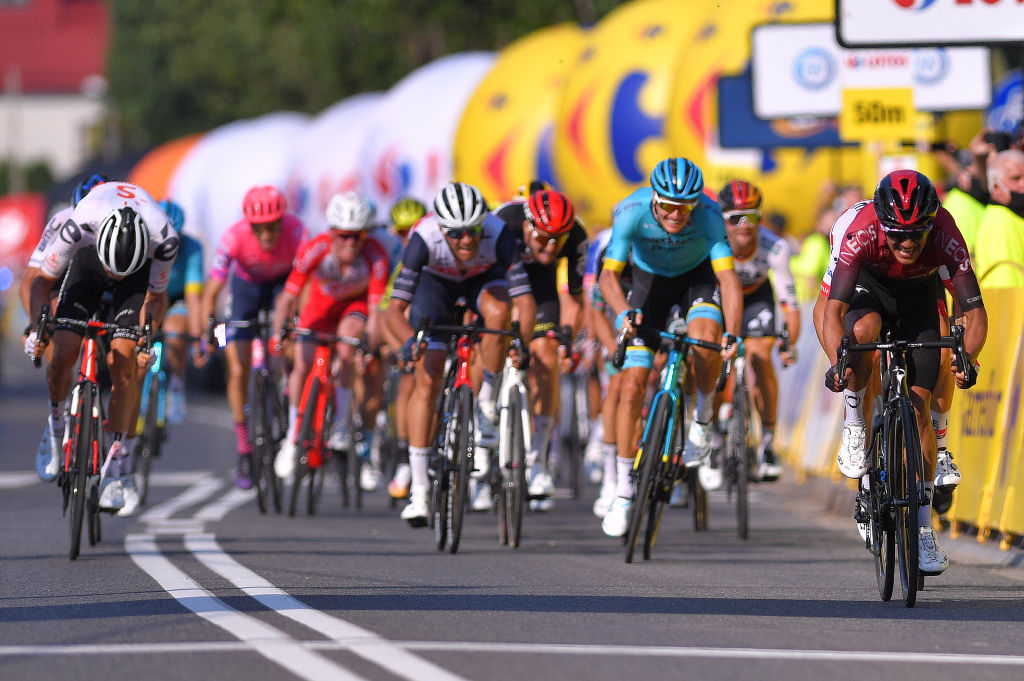
The Tour de Pologne is the only WorldTour race in Poland, it is usually jammed between Tour de France and Vuelta a España and in the void of post-Tour hype and the Spanish Grand Tour, it offers a testing ground for talented young riders on some of the sport’s teams.
Some may assume leadership in a week-long race for the first time, some will try to add a WorldTour win to their palmares.
This year, with the Tour de France starting earlier and numerous riders attending the Olympic Games in Japan, the Polish stage race clashes with the opening of the Vuelta but still promises a week of entertaining racing.
The route favours puncheurs and climbers who can hold their own in the 19-kilometre stage 6 time trial, although, due to a bizarre application of the time gaps measuring protocol, the race promises to be a battle for every second.
Of course, there was only one story that mattered in the cycling world at last year’s Tour de Pologne: the crash of Fabio Jakobsen.
As the Polish doctors battled Jakobsen's life, it became clear that the conversation about safety in professional cycling can no longer be kicked down the road. The questions over the Tour de Pologne's safety standards began to mount immediately after the grim images of Dylan Groenewegen squeezing Jakobsen into the fragile metal fencing in Katowice.
In the months that followed, this and other incidents reignited the debate on safety in professional road cycling and a push for new regulations to protect the racers.
The Tour de Pologne have worked to improve the safety of their race and will use Boplan plastic barriers which help absorb the impact of crashes and better protect riders from the dangers of road furniture.
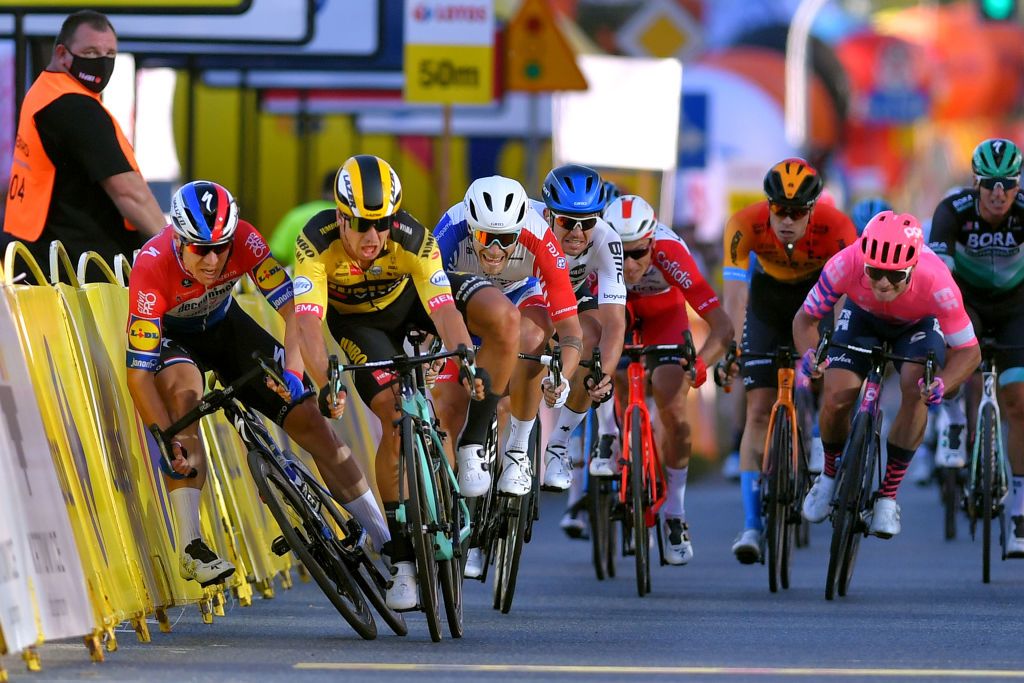
The race route
The Tour de Pologne has followed somewhat a similar pattern for the large part of the last decade and does so again this year but with some changes.
Hilly stages mixed with flat finishes and an intense mountainous circuit in Bukowina have become a hallmark of the August race that relied on long-term agreements with cities willing to host the peloton.
Rarely deviating from this path, the Tour de Pologne is an opportunity for young riders to assume leadership and for sprinters to add some summer success to their palmares on a WorldTour level.
This year the changes are clear to see and easy to understand why. Gone is the high-speed downhill finish in Katowice, a time trial back on the menu in the city instead, while the mountain stages are replaced by punchy finishes, more suitable to Ardennes specialists.
The riders will cover 1142 kilometres over 7 stages. There are three punchy finishes, one hilly stage, two opportunities for sprinters, and a time trial to sort out the general classification.
With bonus seconds available, the gaps between top riders are likely to be small, even more so since the two hilly finishes are labelled as stages “expected to finish in bunch sprints.”
Benign as it sounds, it means that the jury will apply the UCI protocol for measuring time gaps in bunch sprints to the punchy finals on stages 1, 2, 3, 5, and 7 and will only confirm a time gap between riders if it’s more than three seconds.
The opening in eastern Poland favours both sprinters and puncheurs. Starting from Lublin, the peloton will make its way to Chełm and finish in the city centre, on an 800-metre long section of cobbles.
With an average gradient of five per cent, it could suit the likes of Michał Kwiatkowski (Ineos Grenadiers) but also a powerful sprinter.
Kwiatkowski should be the man to beat on stage 2, where riders tackle three climbs before hitting a steep finale in Przemyśl. There are two climbs in the last 1600 metres: after the initial cobbled incline (400 metres at 9%) comes a short and narrow descent leading up to the final climb. It is 800 metres at 11 per cent will suit well-positioned Classics riders, perhaps a savvy climber.
The general classification should be set at this point, at least enough to withstand a 226km long stage 3 to Rzeszów. With breakaways poised to fight for points on the climbs and intermediate sprints, sprinters will be patiently waiting for their moment. The second one will only come on the last day, in Kraków.
After three days in the eastern parts of Poland, the peloton will head west for the second part of the race. The organizers decided to skip a well-known circuit in Bukowina Tatrzańska and instead threw in a 160km stage from Tarnów to Bukowina, keeping only a short climb in Łapszanka (4 km at 5.4%) and the final climb to Bukowina (3 km at 5.1%).
Unless a climber attacks at the bottom of the climb and holds on to the finish as Rafał Majka did in 2014, a sprint from a select group is expected.
The finish in Bukowina should set the stage for the time trial on a penultimate day, although there will be little time for respite.
The race heads back north and then further west on its way to Bielsko-Biała. Three categorized climbs should test the bunch, but the ball game is the local circuit with a 2.3 km climb to the finish.
While it averages only 4 per cent, the fourth time of asking at the finish is bound to hurt the sprinters and open the door for surprises. Michał Kwiatkowski and Richard Carapaz sprinted to victories there in 2018 and 2020, as did Luka Mezgec in 2019.
With the last stage being the sprint finish in Kraków, the general classification riders will be settled in a race against the clock in Katowice on stage 6.
The city remained the race’s partner, but instead of the downhill sprint finish, touted as “the temple of sprint” by the Polish media, riders will be squeezing into their skinsuits for a 19km time trial.
The route is largely flat, slightly undulating at times, and suits time trial specialists who can muster enough skill to navigate one technical section at speed.
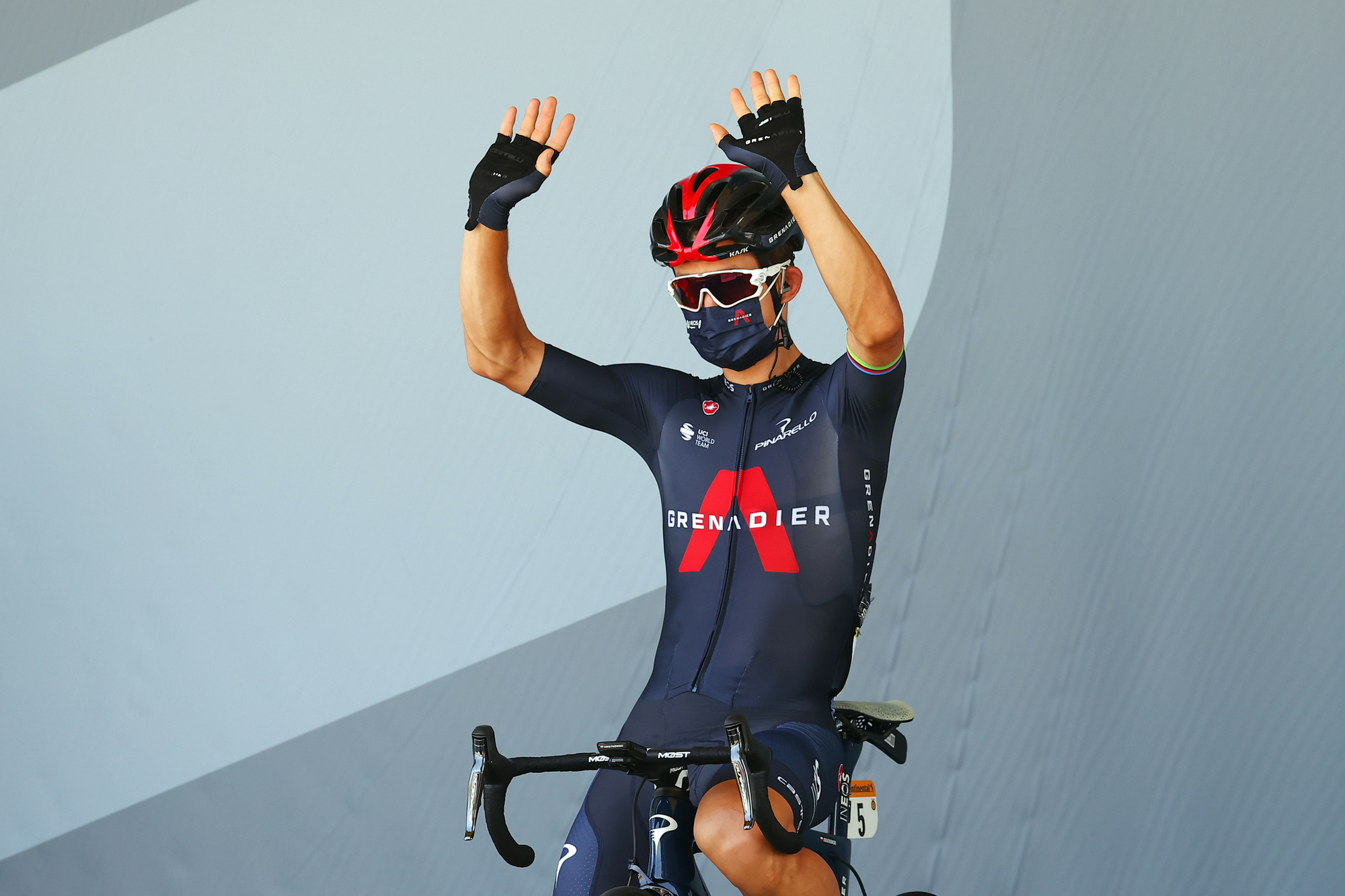
The riders to watch
Ineos Grenadiers’ Michał Kwiatkowski is the home favourite and a man on form.
The Pole came out of the Tour de France in a shape that allowed him to bridge over to Tadej Pogacar on Mikuni Pass and launch a few attacks in the final of the Olympic race.
Kwiatkowski didn’t have much time to recuperate from his failed bid for the medal as he became a father for the first time shortly afterwards. Still, he will be the man to beat with punchy climbs and a time trial suiting his abilities well and a strong team to help him.
Having dominated the race last year, Deceuninck-Quick-Step brings João Almeida and Mikkel Frølich Honoré to Poland. The Portuguese rider, who is set to leave the team on a five-year deal with UAE Team Emirates, might look to the Dane to chase puncheurs in the first days and then try to outpower them in the time trial. Honoré, with third place in Donostia San Sebastian Klasikoa under his belt, will be a rider to be reckoned with, especially in the fight for the bonus seconds.
Dealing with short ascents and time trialling is something Tim Wellens (Lotto-Soudal) can do well. The 30-year-old has Etoile de Besseges to his name this year but is still looking for a victory on a WorldTour level. He won the Polish race overall back in 2016 and if on form, could push Kwiatkowski in the battle for the podium.
Diego Ulissi (UAE Team Emirates) likes punchy climbs and will be happy to see this year’s Tour de Pologne route.
The Italian has won stages of Tour of Slovenia and Settimana Ciclistica Italiana after his early-season heart problems and surgery and will be looking to extend this streak in a WorldTour race.
He will by no means be the only one: Groupama-FDJ sends Attila Valter, a Hungarian who is handy in steep finals and time trials, while George Bennett (Jumbo-Visma), Jai Hindley (Team DSM), or Einer Rubio (Movistar Team) could think of laying the challenge at least in one of the stages.
Giovanni Aleotti (Bora-Hansgrohe) is a rider to watch. He may be not well-known but the 22-year-old Italian has already won the Sibiu Cycling Tour and took third overall at the Settimana Ciclistica Italiana in his first year with Bora-Hansgrohe. Fresh off the podium in Circuito de Getxo, he should feature in battle on the ascents in Przemyśl and Bukowina.
On paper, there are only two days for sprinters, although the first stage might be a challenge more fast men will be able to stomach.
Pascal Ackermann (Bora-Hansgrohe) will face Fernando Gaviria (UAE Team Emirates), David Dekker (Jumbo-Visma), Alvaro Hodeg (Deceuninck-Quick-Step), and Nikias Arndt (Team DSM) in the sprints.
Cobbles in the final of stage 1 could suit John Degenkolb (Lotto Soudal), while Jake Stewart (Groupama-FDJ) is another young rider to watch in the sprint finishes after a string of good results in spring Classics.
Cyclingnews will have full coverage of the 2021 Tour de Pologne, with daily stage reports, photo galleries, news and interviews.
Get The Leadout Newsletter
The latest race content, interviews, features, reviews and expert buying guides, direct to your inbox!
Latest on Cyclingnews
-
'Without that fall, I would have won the race' - Remco Evenepoel comes back from mid-race crash to contest three-way sprint at Amstel Gold Race
'I will not make the same mistake in Liège' Olympic Champion looks ahead to remaining Ardennes Classics -
'Maybe we were too enthusiastic' – Tadej Pogačar comes up short in Amstel Gold Race solo move, proves he's human after all
World champion loses three-up sprint to Mattias Skjelmose after being caught 8km from the finish by Remco-Evenepoel-led duo -
GP Féminin de Chambéry: Erica Magnaldi takes solo victory in hilly one-day race
Mona Mitterwallner second, Léa Curinier third in Chambéry -
Keegan Swenson uses late attack to win The Growler a second time while Lauren Stephens powers solo for women's victory
Swenson put on master display with Matt Beers to make up two-minute gap to Irishman Conn McDunphy and 20-year-old US rider Marcis Shelton
